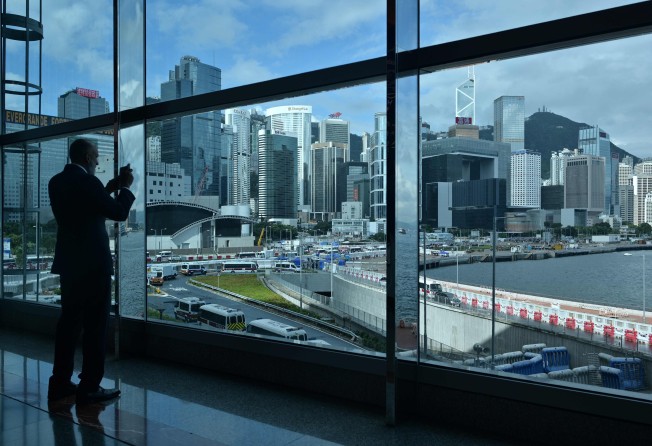Erosion of Hong Kong’s institutional autonomy will hurt advantage over mainland China cities, high credit rating: Moody’s
- Ratings agency affirms city’s long-term issuer rating of ‘Aa2’
- City’s status as an independent entity could be ‘altered suddenly and much earlier than 2047’ by some of its international partners, the agency says

A potential erosion of Hong Kong’s institutional independence from Beijing over time could diminish the special administrative region’s advantage over mainland Chinese cities, as well as its higher credit rating, ratings agency Moody’s said on Friday.
The agency said it was affirming the city’s long-term issuer rating of “Aa2”, two notches higher than China’s “A1” and two notches lower than the United States’ “Aaa”.
“Over time, and as 2047 – the end of the 50-year transition period – approaches, the risks also relate to a potential actual or perceived erosion of the institutional features that provide Hong Kong with a degree of political and economic independence and, related to this, a comparative advantage vis-à-vis large cities in the mainland,” Moody’s said.
“Such an erosion would likely result in a weakening of Hong Kong’s very high institutional strength and a narrowing of the gap between Hong Kong’s and China’s ratings.”
Hong Kong, a former British colony, was handed back to China in 1997. And under the Sino-British Joint Declaration of 1984 deposited with the United Nations, Hong Kong would “remain unchanged for 50 years” – it would retain a high degree of autonomy with its legal and judicial systems unchanged.
The 50-year transition period ends in 2047.
The Moody’s statement came four days after Hong Kong was rocked by its biggest protests and civil disobedience since the handover, against an attempt by the local government to bulldoze through the legislature a bill that would establish a mechanism to extradite fugitives to mainland China, Taiwan and Macau. The bill has drawn widespread criticism and concern that it would erode Hong Kong’s legal system and damage the city’s business climate.
The right to protest was part of the checks and balances in place in Hong Kong that support its “institutional strength”, Moody’s said.
It said Hong Kong’s economic and financial metrics were “very strong”, and could merit a higher rating were it not for the city’s “linkages” to mainland China.
Meanwhile, Hong Kong’s status as an independent entity from China in many international settings, including the World Trade Organisation and in bilateral trade arrangements, could be “altered suddenly and much earlier than 2047” through unilateral actions by some of the city’s international partners, the agency said.
For instance, the US Congress is considering making the status of the United States-Hong Kong Policy Act conditional on its perceptions of developments in the “one country, two systems” policy, under which Hong Kong was reunified with China.
“In this scenario, the ratings gap between Hong Kong and China would probably narrow,” the agency found.
In the short term, even the status quo in US-China trade relations and the uncertainty of the trade war will hurt Hong Kong directly through slower trade and indirectly via weaker business investment and domestic consumer demand, it added.
Given the risks, the agency forecast growth in Hong Kong’s gross domestic product to slow from 3 per cent last year to 2.3 per cent this year, before recovering modestly to 2.7 per cent next year.